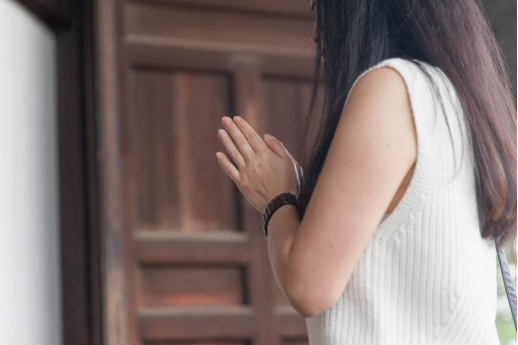
Praying for a role: Do Japanese actresses think getting religious is a good career move?
“Ankoku Joshi” is a murder mystery involving six pretty JK (slang for joshi kosei, high school girls)” who all have something to hide. The film’s title literally means “pitch black girls,” which pretty much explains their characters’ personalities in what soon becomes a grisly little tale directed by Saiji Yakumo.
For those who are interested in studying the dark arts of high school, make tracks to the cinema immediately. For the rest of us, however, “Ankoku Joshi” is notable because of the light it sheds on a small-but-intriguing aspect of Japan’s film industry: actresses who are turning to religion. The lead joshi from the film is Fumika Shimizu, and she made headlines several weeks ago when she suddenly announced her intentions of becoming a nun for the increasingly powerful religious group Kofuku no Kagaku (Happy Science in English).
Shimizu’s commitment runs pretty deep. According to domestic news sources she has been an avid believer since childhood and discussed the possibilities of terminating her acting career with her agency long before working on “Ankoku Joshi.” Since her announcement last month, the 22-year-old actress has made herself scarce, failing to show up for the film’s promotional gigs and keeping eerily silent. The other cast members proceeded to appear in public without her but, if anything, Shimizu’s absence contributed to a considerable boost in box-office sales.
Shimizu is by no means the first Japanese actress or celebrity to turn to religion for guidance and spiritual support. Back in 1992, actress and singer Junko Sakurada surprised her fans by participating in a mass wedding held by the Unification Church in South Korea. Olympic gymnast-turned-actress Hiroko Yamasaki was at the same ceremony, and they both got married to fellow Unificationists. After this affair, a sizable number of actresses came out of the holy closet as it were — Yasuko Sawaguchi admitted to being an avid devotee of the Shinnyo-en cult, Kayoko Kishimoto belongs to Soka Gakkai (which controls Komeito) and Yuki Saito is reportedly a Mormon.
Industry gossip states that many actresses don’t actually believe what they claim to worship. They are said to join the groups because their friends and bosses have done so and they don’t want to miss out. And there are a lot of perks to being part of a popular religious cult: These women will have access to roles and jobs, the spiritual angle is great for publicity and, most important of all, they will be protected from the cruel winds of the press. In the tricky, volatile world of the Japanese media, a woman needs to kneel at the same altar with her best and most powerful allies, or she may find it hard to survive.
These days, though, the woman most famous for her spiritual bent isn’t Shimizu but first lady Akie Abe, who has spoken publicly about “being called by god” in conjunction to the Moritomo Gakuen scandals. Not that I could see her ever becoming a nun.
http://www.japantimes.co.jp/culture/2017/04/06/films/talent-gets-religious/#.WO7UvWf_qM8